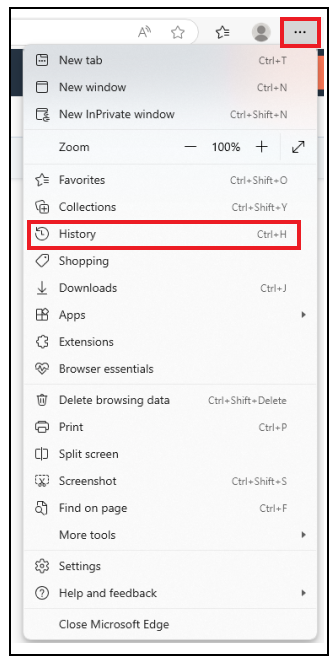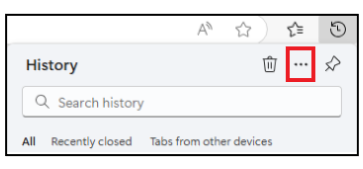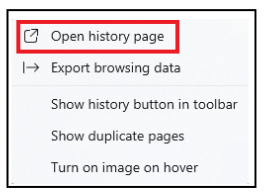Windows Browser Maintenance
A browser can be affected by websites that are visited. This is normal but after a period this can affect the way the browser performs. When this happens, it is recommended that this information added by websites be purged. It is also recommended that for better performance and security, the latest version of the browser be used. If you find that you are not using the latest version of your browser be sure to download the updated version from the manufacturer or a trusted, secure website.
This document details how to check the version of the browser as well as deleting the browsing history and the cached files left behind by some websites. Suggestions for Google Chrome, Mozilla Firefox, and Microsoft Edge for Windows are detailed in this document.
Google Chrome Maintenance
Checking the version of Chrome
Open Chrome and from the three vertical dots drag down to Help and over to About Google Chrome:
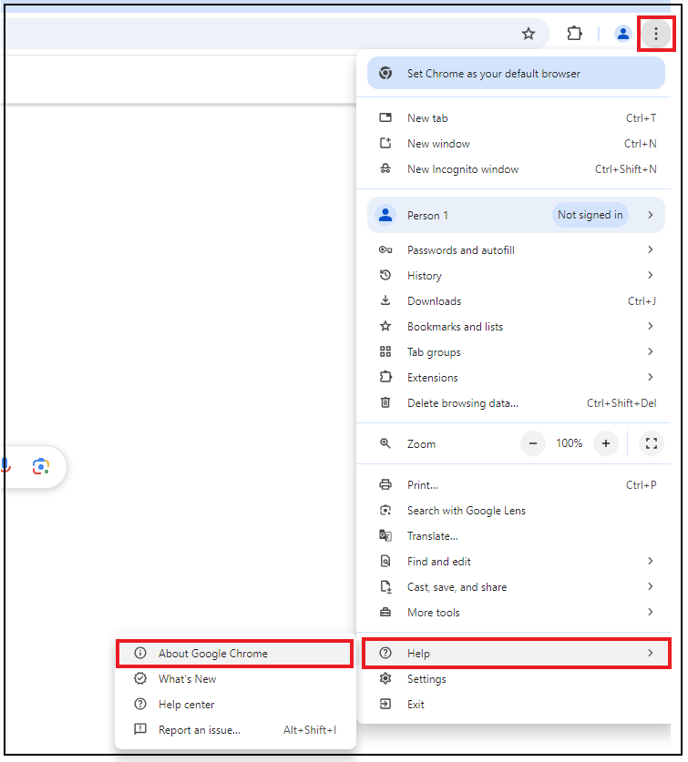
In this example, Google Chrome is up to date:

Deleting The Browsing History And Other Cached Files

When the Delete browsing data window opens, select the Advanced tab:

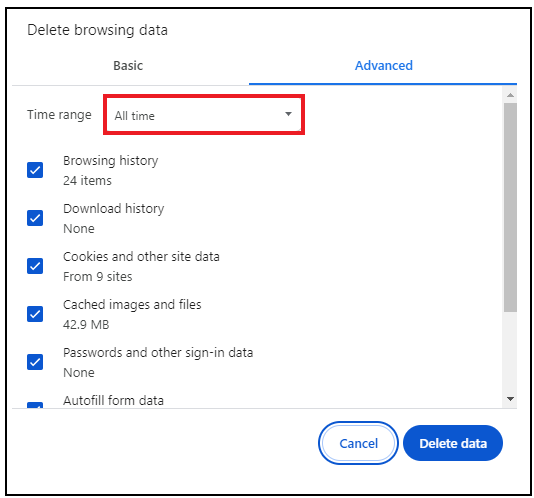
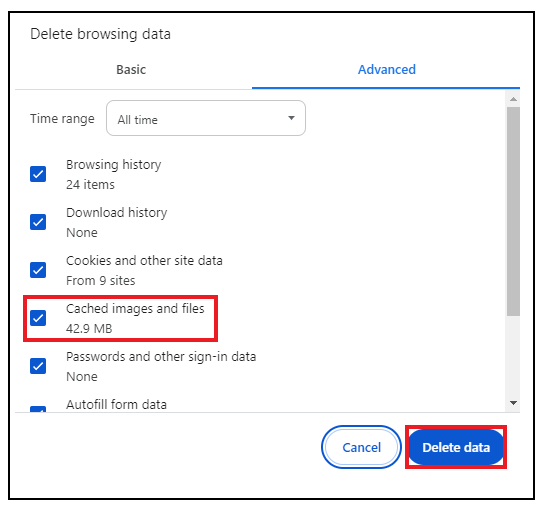
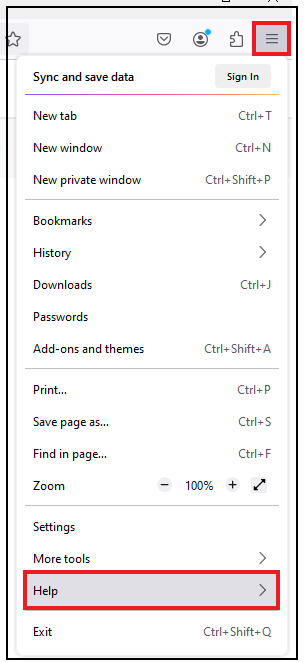
From Help, select About Firefox:

If Firefox is not up to date, select Restart to Update Firefox:

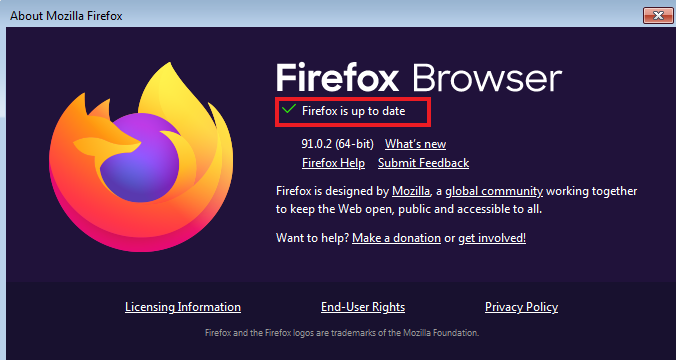
Deleting The Cached Files
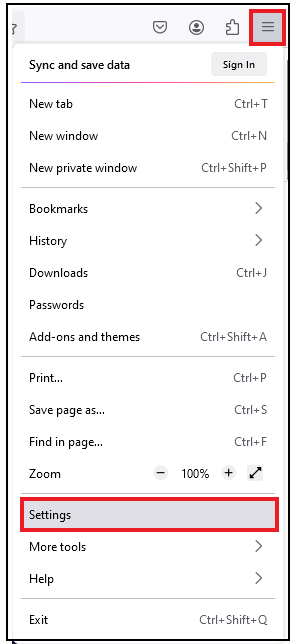
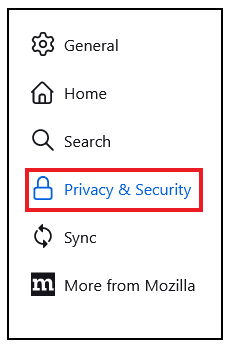
Locate Cookies and Site Data and select Clear Data....

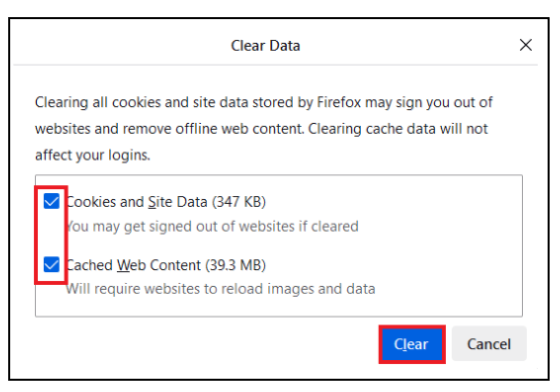
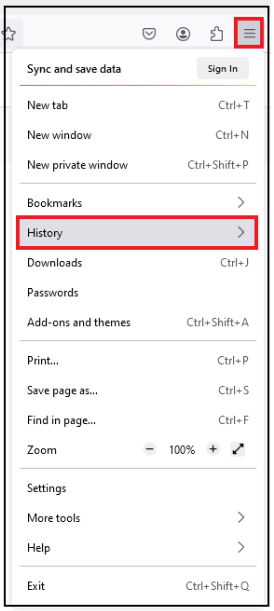
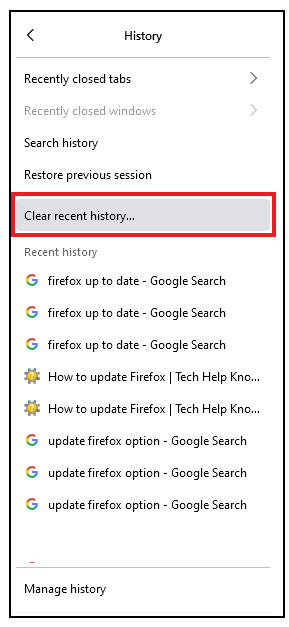

Microsoft Edge Maintenance
Checking the version of Edge
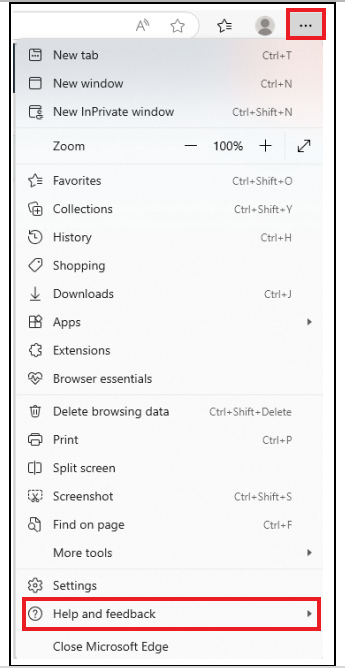
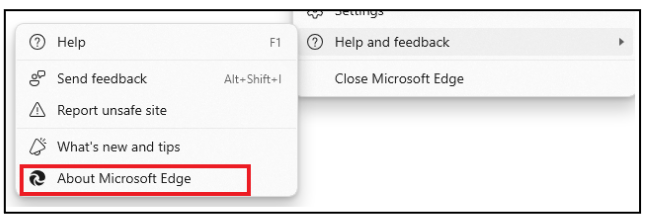
Microsoft Edge is up to date:
 Note: Since Edge is manufactured by Microsoft select, a check for Microsoft Updates will display an update for Edge if there is one available.
Note: Since Edge is manufactured by Microsoft select, a check for Microsoft Updates will display an update for Edge if there is one available.
